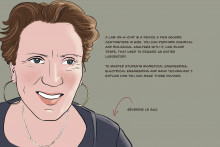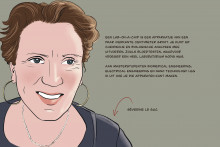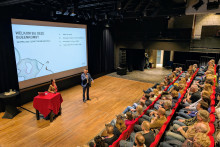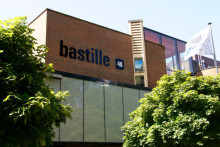‘I was working when I got apps from two acquaintances that the Notre Dame was on fire,’ says Le Gac. ‘I immediately thought it was an attack. In recent days there have been countless stories in the French media that warned: Paris can be a target, especially in the days leading up to Easter. Then I checked the French newspapers online.’
That the fire seems to be an accident is hardly a reassurance for Le Gac. ‘I felt shocked and devastated all night. I couldn't go to bed either, until the French news reported around half past eleven that the fire was under control. Notre Dame is one of the most important monuments in my city, and I love the medieval architecture. I checked the new as soon as I got up and saw Parisians singing and praying at the cathedral. That gave me goosebumps.’
Le Gac will leave for Paris on Friday to spend Easter with her family, as planned. ‘Then I will see Notre Dame, as I pass it on my way. I will certainly stop for a moment to reflect on this drama.’
Bastien Venzac, a fellow researcher at EEMCS, is also from Paris. Just like Le Gac, he heard about the fire through WhatsApp. ‘In three groups people talked about it: in the family app, the friends app and one with colleagues from a lab where I previously worked,’ he says. ‘Then I watched live streams of French newspapers and watched television. The images were alienating: a building that has been standing there for so long, you can't imagine it burning down.’
For Venzac, Notre Dame together with the Panthéon is iconic for ‘his’ city. ‘Paris is huge,’ he says. ‘I used to see those two buildings every day. I am pleased that the damage does not seem to be as critical as it appeared at first and that Notre Dame is being restored to its glory.’








